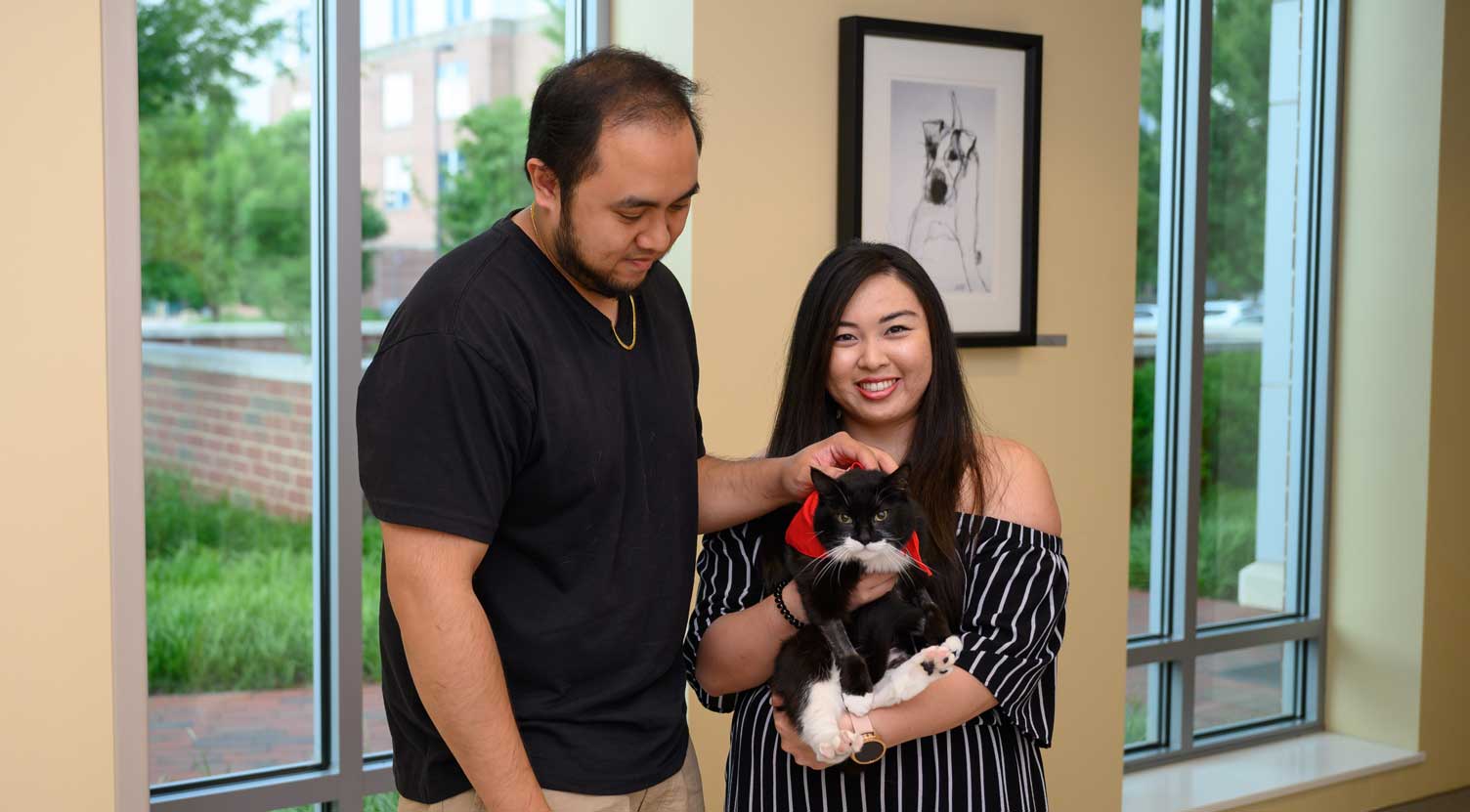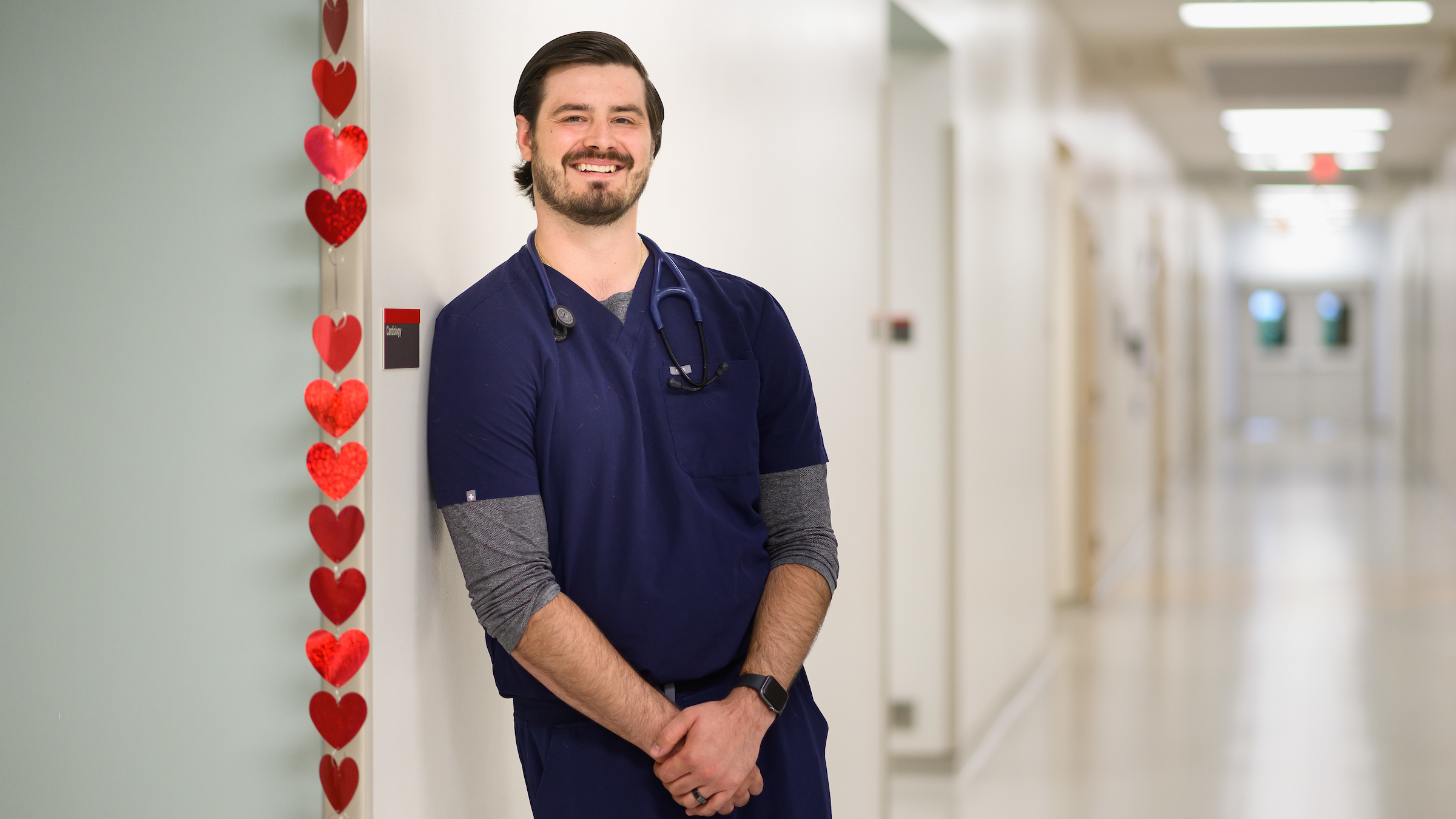Improving the Odds for a Cat Named Otter

When Caramel, a cat owned by Melissa Tran and her boyfriend, Jeremy Mey, had a litter of eight kittens in 2010, things didn’t go smoothly. It was a difficult delivery, with some of the kittens being stillborn. Tran thought that one of the tiny survivors, a female, seemed to resemble an otter as she lay on her back taking her first breaths.
When the Charlotte couple decided to keep one of the kittens as a companion for their mother, Tran remembered that the little otter lookalike stood out as tough and resilient. “She’s a fighter,” she said.
Otter’s owners said the cat has “grown into a princess who craves attention and is curious, mischievous and sweet.” Although the couple has a soft spot for all animals and also owns some chickens, there’s no doubt that the feline mother and daughter are in charge.
It was February when Tran and Mey first noticed a swelling on Otter’s upper left hip. She was behaving normally, but when they held her and massaged the swollen area, she seemed agitated.
The couple took their little princess to a veterinary clinic, where mass was determined to be an injection-site sarcoma. Although this type of cancer is rare, some cats develop cancerous tumors called soft tissue sarcomas after injections such as vaccinations, as well as sutures and implanted microchips. The tumor was diagnosed in April and removed by a surgeon in Charlotte the following month.
Soft tissue sarcomas are very locally invasive, with a strong probability of recurring in the same spot.
Shortly after surgery, Otter was referred to the NC State Veterinary Hospital where she was seen by Tracey Gieger, clinical associate professor of radiation oncology. To combat a rapid recurrence of the tumor, Tran and Mey opted for full-course radiation therapy. This involves approximately 20 daily treatments over a four-week period, with a goal of eliminating any cancer cells that remain after surgery. This treatment option offered optimal results for Otter, even though these tumors sometimes return even after radiation.
Tran and Mey took advantage of the full-course radiation therapy even though the cost was daunting.
“We just felt that we needed to do something to help her,” Tran said.
That’s when, unexpectedly, what she called a great blessing came to them. Unbeknownst to Tran and Mey, Gieger had investigated the possibility of financial help from the Petco Foundation and Blue Buffalo Cancer Treatment Fund which helps pet owners defray the cost of treatments. When Gieger told them about the help they were delighted.
“We were so grateful,” Tran said. “It just came out of the sky.”
The investment to the NC State Veterinary Hospital was established to help pet parents focus on providing the best possible care for their pets rather than the cost of care.
Tran and Mey report that they are having an excellent experience at NC State.
“They give us very thorough answers to our questions, and we’re being treated very well here,” Tran said. “And Otter is actually being spoiled. In fact, we heard that one of the oncologists had her sitting in his lap while he was working at his desk.”
Of course, that’s the least you can do for a princess.
~Steve Volstad/NC State Veterinary Medicine
- Categories:


